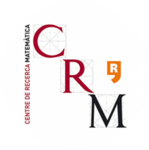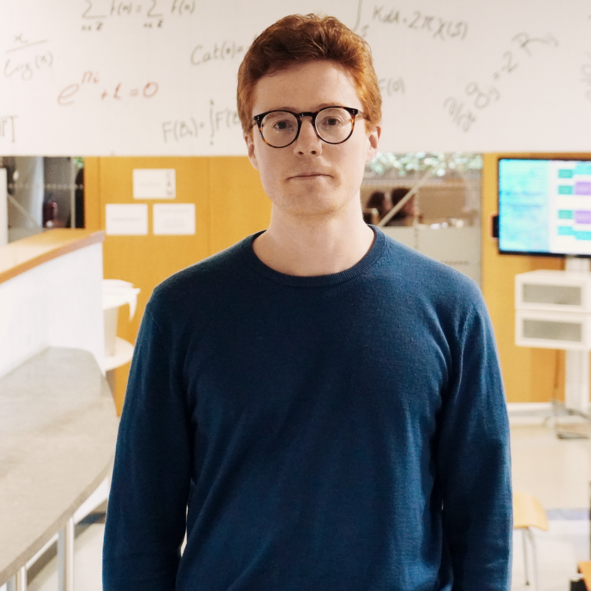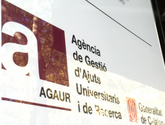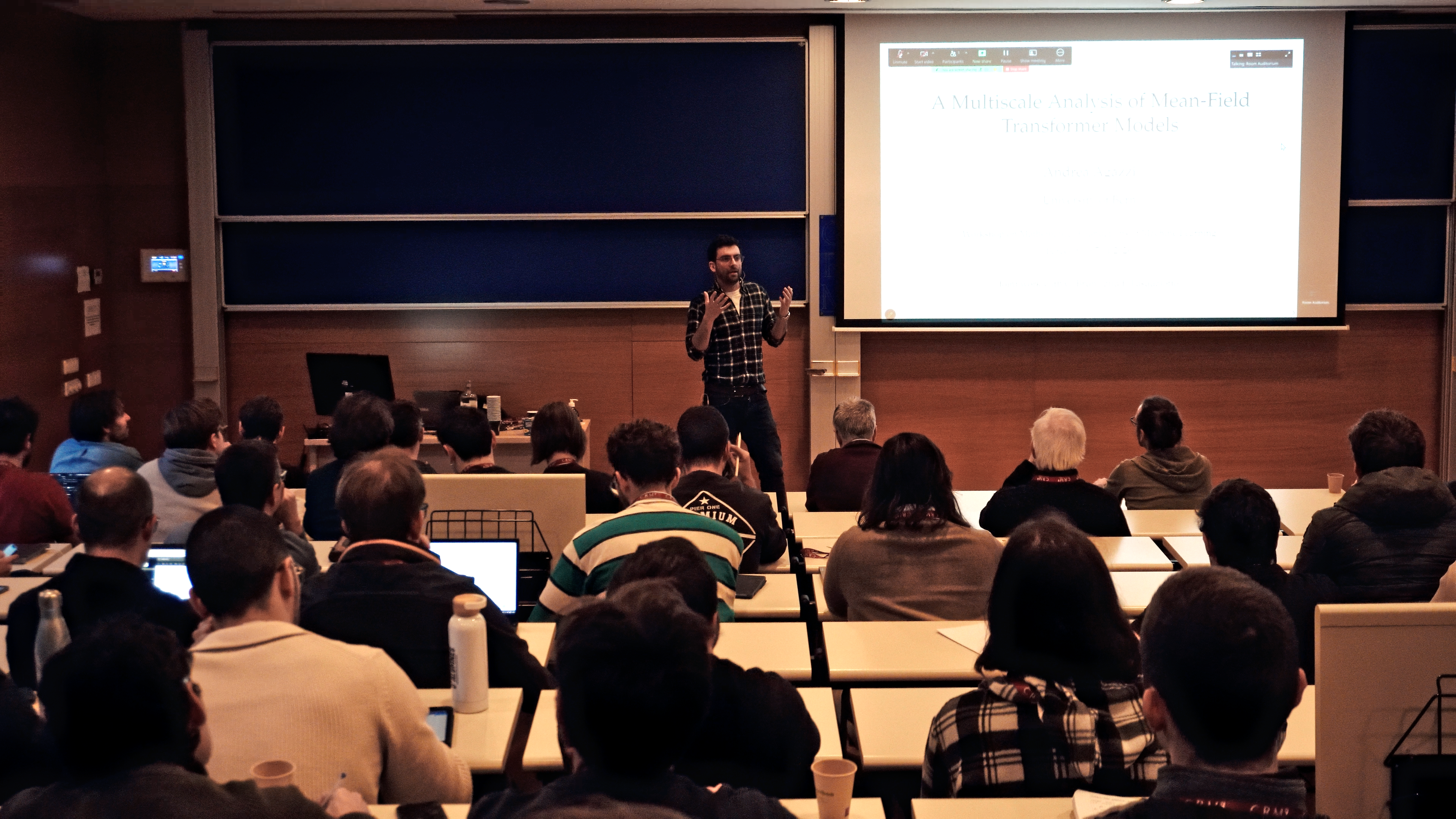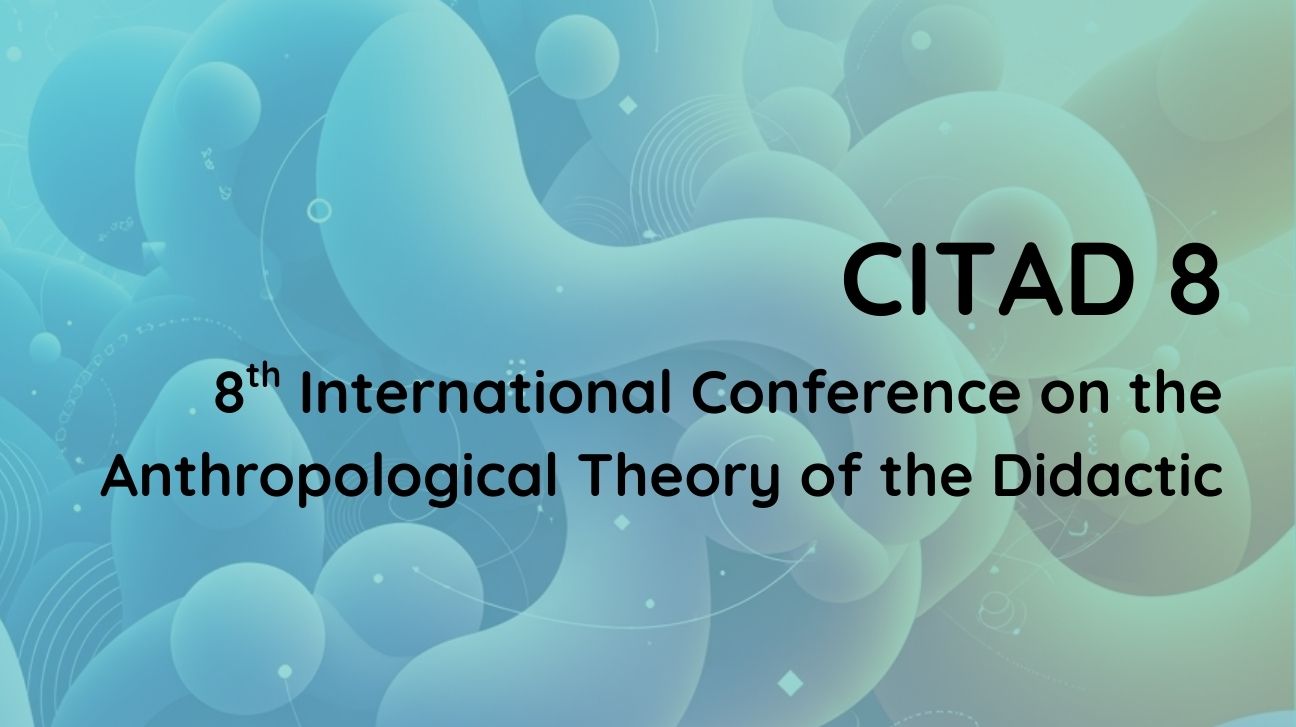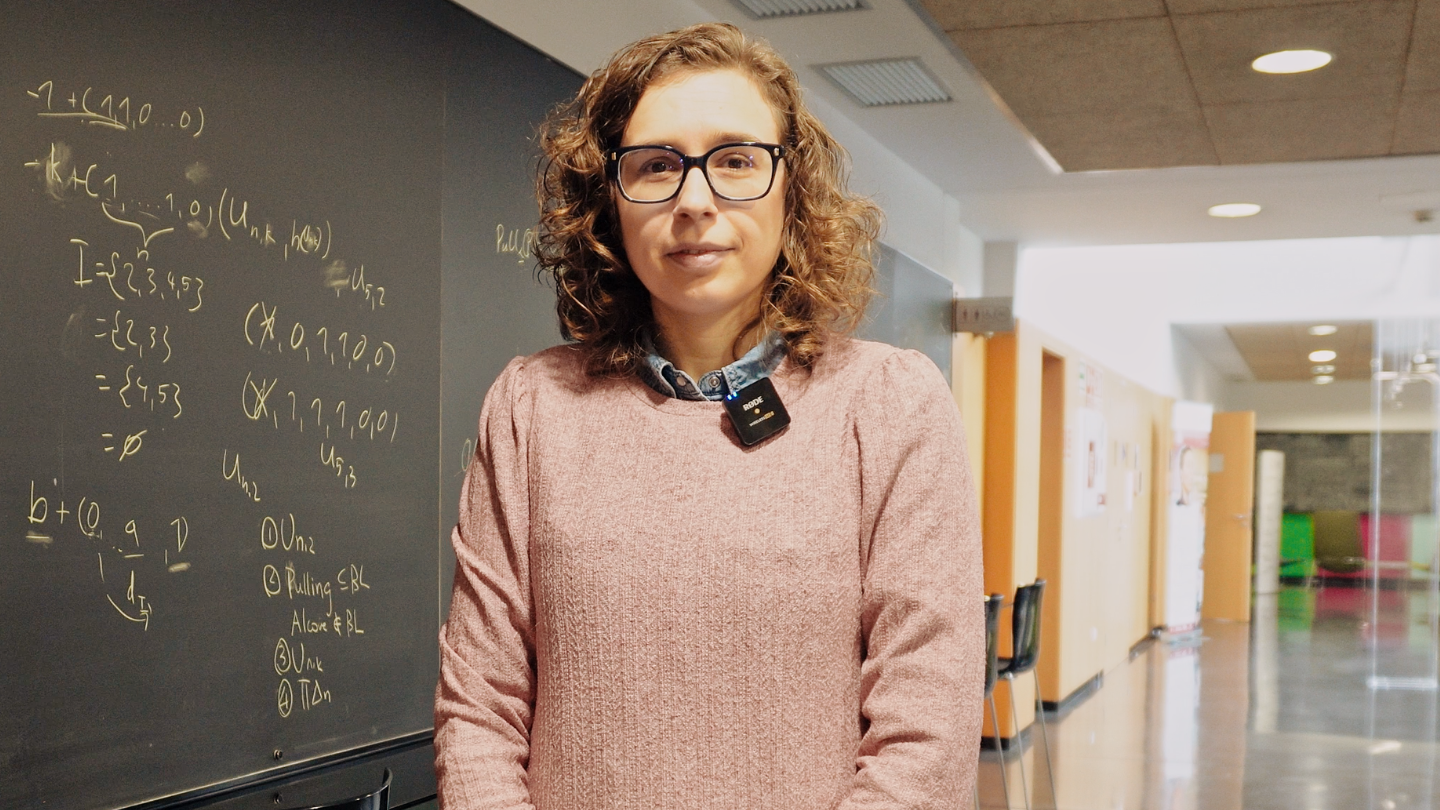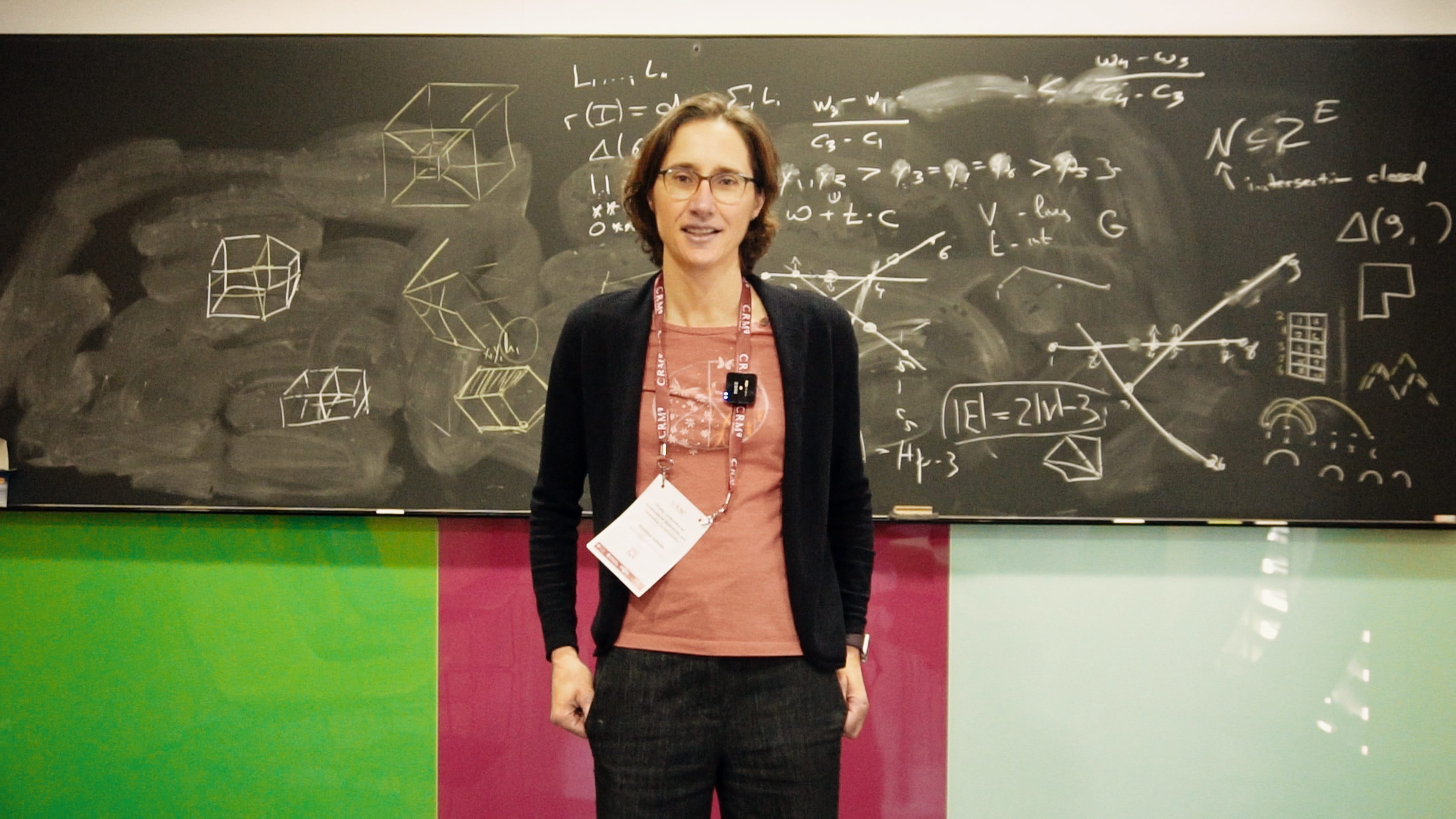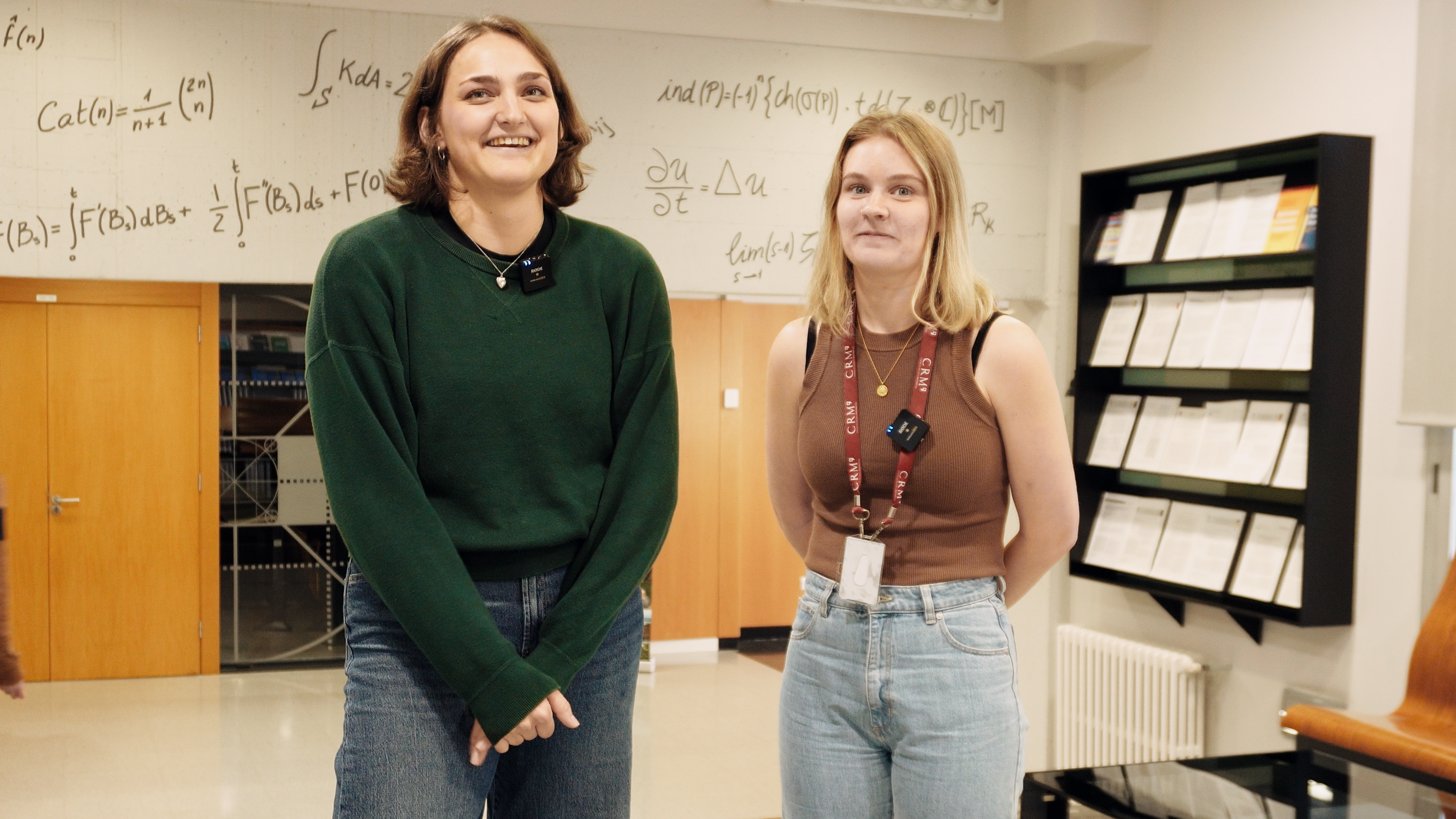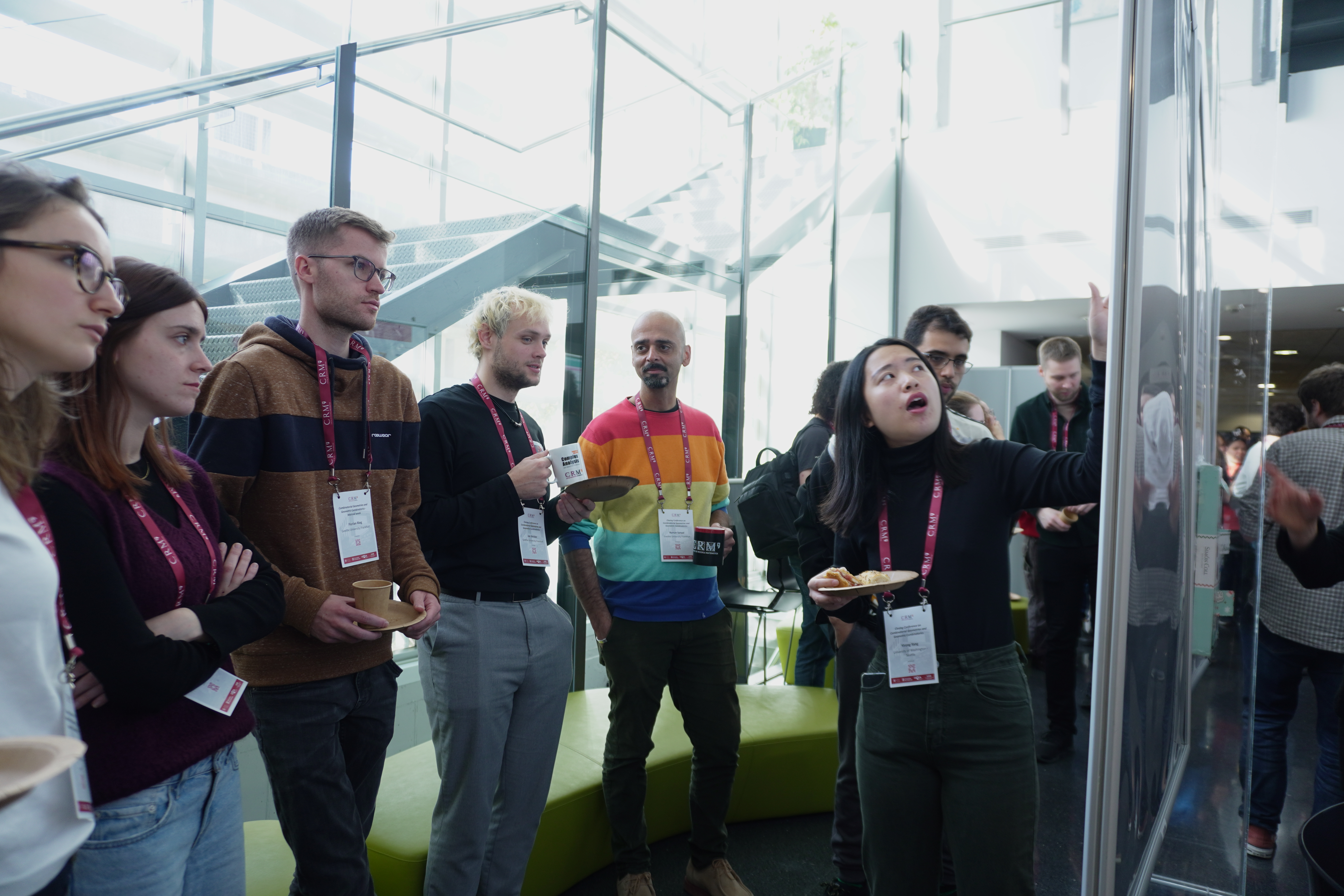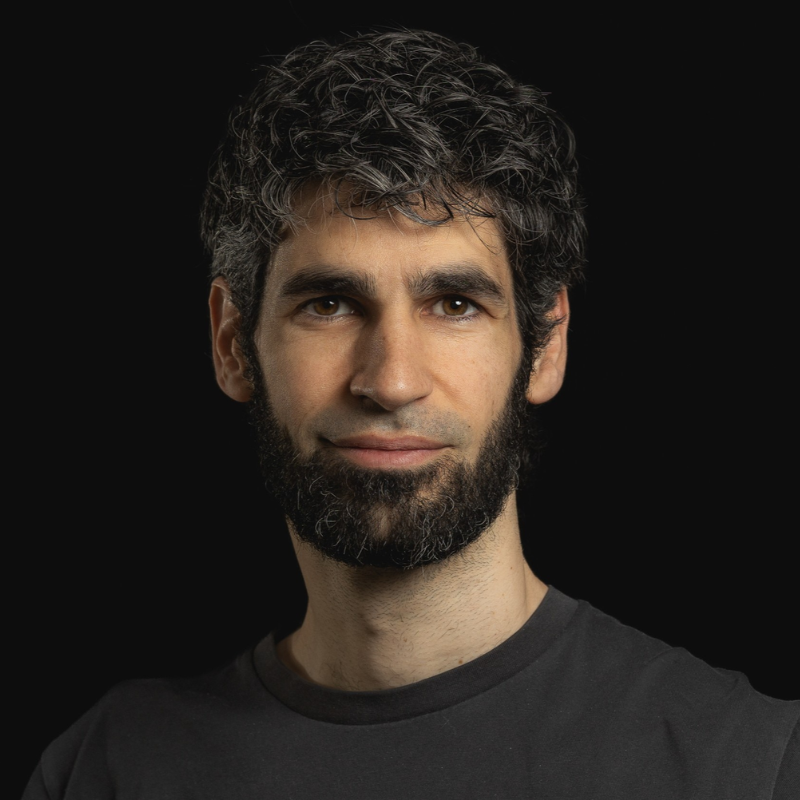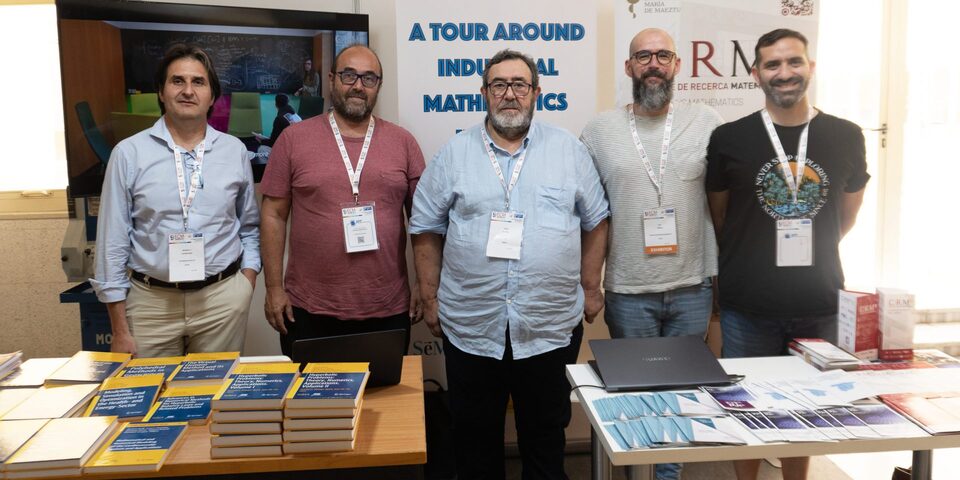
- The 9th European Congress of Mathematics (9ECM) took place in Seville from July 15 to 19, 2024, with 1300 participants, featuring plenary lectures, invited talks, minisymposium talks, and thematic session presentations.
- CRM participated with several talks and panels, including a collaborative booth with Math-in Spain and SEMA, highlighting their research activities and fostering discussions on potential collaborations and research visits.
- CRM researchers Albert Mas, Ramon Antoine, and Francesc Perera presented on topics such as Dirac operators, C*-algebras, and Cuntz semigroups, while Lluís Alsedà, CRM Director, participated in panels on open science and the role of mathematics institutes.
Last week, Sevilla became the European capital of mathematics by hosting the 9th European Congress of Mathematics (9ECM). The event, running from July 15 to 19, 2024, attracted 1300 participants from all over the world and featured a comprehensive program including 12 plenary lectures, over 30 invited talks, 640 minisymposium talks, and 270 thematic session presentations. Organized by the European Mathematical Society (EMS), the ECM is held every four years in different European cities. It provides a platform for leading mathematicians to discuss the latest advancements in their fields. The 9th ECM, the second to be held in Spain following the 2000 Barcelona edition, is the largest mathematics congress in Europe and the second largest worldwide after the International Congress of Mathematicians. Highlights included the EMS Prizes awarded during the opening ceremony, recognizing outstanding contributions by European mathematicians under 35, and the Felix Klein and Otto Neugebauer Prizes.
The Centre de Recerca Matemàtica (CRM) participated in the congress by holding several talks and panel discussions. A key highlight of CRM’s participation was the collaborative booth managed alongside Math-in Spain and the Spanish Society of Applied Mathematics (SEMA). This booth, highlighting not only the research activity carried out at CRM but also the work of the Knowledge Transfer Unit, represented by its director David Romero, offered researchers, students, and industry professionals an opportunity to learn about CRM’s latest projects and initiatives. The booth facilitated discussions on potential collaborations, research visits by international researchers, and also the hosting of potential PhD students.
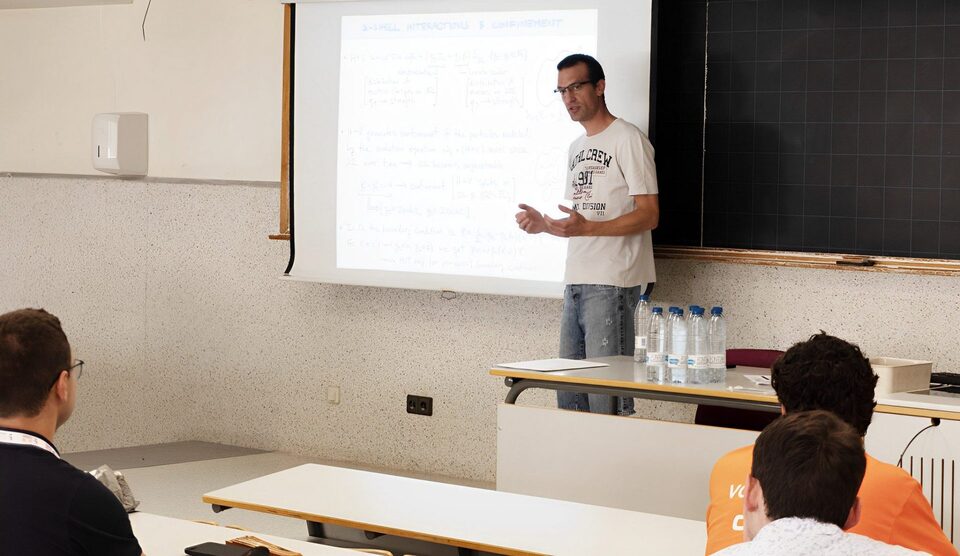
CRM researchers also made significant contributions to the congress by participating in various minisymposiums, represented by Albert Mas, CRM affiliated researcher from the UPC, and Ramon Antoine and Francesc Perera, affiliated researchers from the UAB. Albert Mas‘ presentation on the convergence of generalized MIT bag models to Dirac operators with zigzag boundary conditions explored a family of Dirac operators with specific boundary conditions. Ramon Antoine Riolobos presented his findings on C*-algebras, specifically those considered (m,n)-pure as defined by Winter. He explained that such algebras are inherently pure, with their Cuntz semigroups exhibiting regular properties like almost unperforation and divisibility. His research showed that even weaker conditions within these semigroups naturally lead to the overall purity of the C*-algebra, enhancing the understanding of their structural qualities.
During the same minisymposia on operator algebras, Francesc Perera, who also served as the chair of the session, gave a talk on “Ideal Free Quotients of Cuntz Semigroups: The Dynamical Cuntz Semigroup”. He introduced a theory for general quotients of Cuntz semigroups, including those by ideals. He explained the concept of admissible pairs and their quotients, similar to how normal subgroups arise in group homomorphisms. This theoretical framework allowed the construction of the dynamical Cuntz semigroup, a universal object derived from a group’s action.
Lluís Alsedà, CRM Director, participated in two panel discussions.
One of the standout events organized by CRM was the panel on New Scenarios in Open Science, chaired by Miguel Ángel Benítez from BCAM. Panellists included André Gaul from EMS Press, Ignasi Labastida from Universitat de Barcelona, and Pilar Rico from FECyT. This panel discussed critical aspects of open science, such as data sharing, open-access publishing, and collaborative research practices. “Open Access means that information is accessible, which is the only way for science in general, and mathematics in particular, to grow,” stated André Gaul.
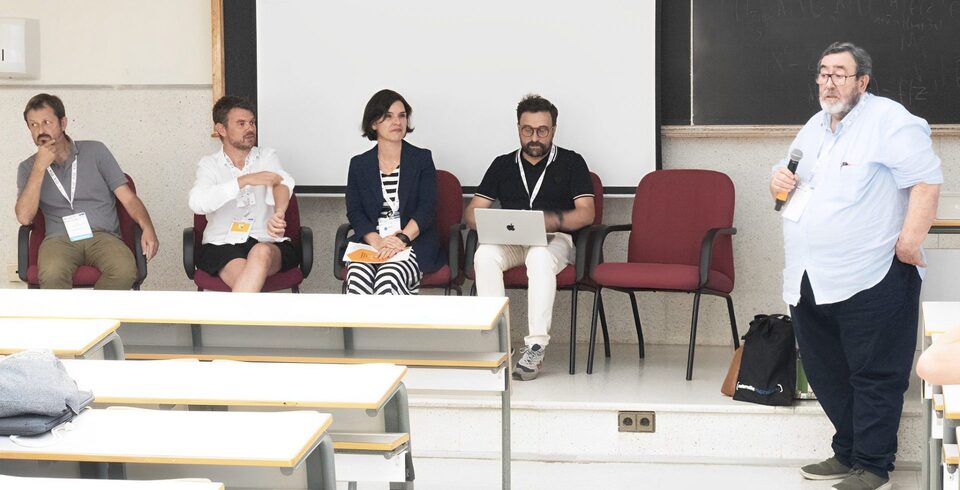
The discussion highlighted the evolving role of academic publishing in promoting open access, the importance of institutional support for fostering open science practices, and the practical challenges and opportunities in implementing these principles in research projects. Recommendations for best practices were also provided to help navigate these challenges effectively.
Another significant event was the panel on The Role of Institutes of Mathematics in the Advancement of Mathematical Research, chaired by Justo Puerto from Universidad de Sevilla. The panel featured several directors of mathematics institutes in Spain, like Rosa Crujeiras from CITMAGA, Lluís Alsedà from CRM, Miguel Sánchez from IMAG, José A. Lozano, Director at BCAM, and Javier Aramayona, Director at ICMAT. The panel also included international experts, Martin Bridson, president of the Clay Mathematics Institute, and Anna Wienhard, director at the Max Planck Institute for Mathematics in the Sciences.
The debate focused on the evolving role of research institutes in fostering innovation, supporting researchers, and addressing global scientific challenges. A recurring theme was the desire for greater collaboration among all mathematics research institutes and the need to push for a more favourable science policy.
Bologna will host the 10th edition of the European Congress of Mathematics in 2028
Following the vote of the European Mathematical Society (EMS) council during the meeting held in Granada before the start of the ECM, Bologna has been chosen as the venue of the 10th edition of the European Congress of Mathematics to be held in 2028.
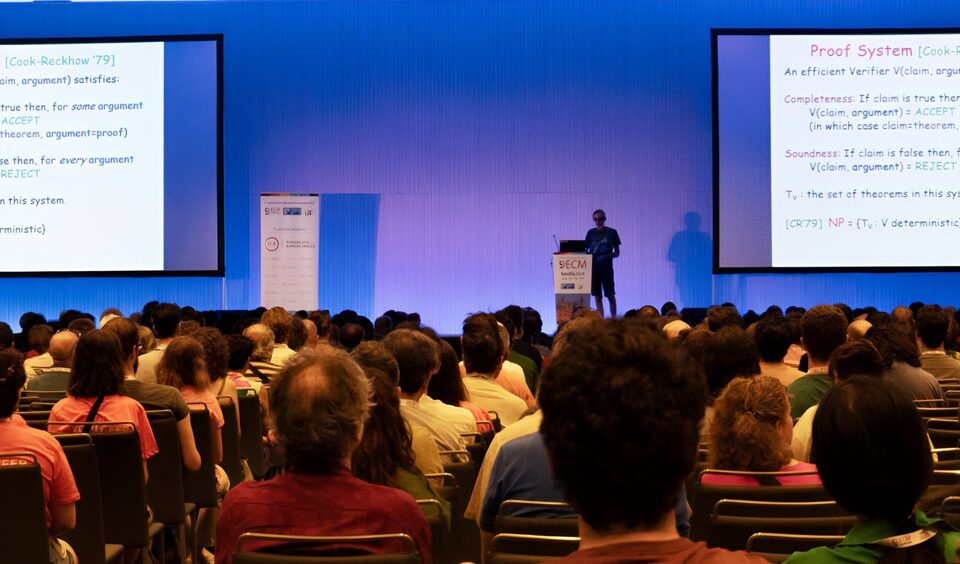
CRM’s active involvement in the 9th European Congress of Mathematics highlighted its presence among the most important mathematical events in Europe, through the collaborative booth, insightful talks by its researchers, and participation in panels. The congress provided a valuable platform for sharing cutting-edge research and discussing future directions in mathematics.
Subscribe for more CRM News
|
|
CRM CommPau Varela & Mariona Fucho
|
The 4th Barcelona Weekend on Operator Algebras: Open Problems, New Results, and Community
The 4th Barcelona Weekend on Operator Algebras, held at the CRM on January 30–31, 2026, brought together experts to discuss recent advances and open problems in the field.The event strengthened the exchange of ideas within the community and reinforced the CRM’s role...
From Phase Separation to Chromosome Architecture: Ander Movilla Joins CRM as Beatriu de Pinós Fellow
Ander Movilla has joined CRM as a Beatriu de Pinós postdoctoral fellow. Working with Tomás Alarcón, Movilla will develop mathematical models that capture not just the static architecture of DNA but its dynamic behaviour; how chromosome contacts shift as chemical marks...
Criteris de priorització de les sol·licituds dels ajuts Joan Oró per a la contractació de personal investigador predoctoral en formació (FI) 2026
A continuació podeu consultar la publicació dels criteris de priorització de les sol·licituds dels ajuts Joan Oró per a la contractació de personal investigador predoctoral en formació (FI 2026), dirigits a les universitats públiques i privades del...
Mathematics and Machine Learning: Barcelona Workshop Brings Disciplines Together
Over 100 researchers gathered at the Centre de Recerca Matemàtica to explore the mathematical foundations needed to understand modern artificial intelligence. The three-day workshop brought together mathematicians working on PDEs, probability, dynamical systems, and...
Barcelona + didactics + CRM = CITAD 8
From 19 to 23 January 2026, the CRM hosted the 8th International Conference on the Anthropological Theory of the Didactic (CITAD 8), a leading international event in the field of didactics research that brought together researchers from different countries in...
Seeing Through Walls: María Ángeles García Ferrero at CRM
From October to November 2025, María Ángeles García Ferrero held the CRM Chair of Excellence, collaborating with Joaquim Ortega-Cerdà on concentration inequalities and teaching a BGSMath course on the topic. Her main research focuses on the Calderón problem,...
Fuel Cells, Filtration, and Decades of Collaboration: A Conversation with Brian Wetton
Brian Wetton, from the University of British Columbia, spent last October at CRM collaborating with Tim Myers on computational models for filtration systems. His career has evolved from pure numerical analysis to applied mathematics with industrial partners, working...
From Barcelona to West Bengal: Chemistry Meets Mathematics to Enhance Water Filter Design
Researchers at the Centre de Recerca Matemàtica, in collaboration with IIT Kharagpur and UPC, have developed a mathematical model that accurately predicts the performance of fluoride-removal water filters made of mineral-rich carbon (MRC) and...
Polytopes, Matroids, and the Friends You Make: Martina Juhnke on Two Months at the CRM
The Centre de Recerca Matemàtica recently hosted a research programme on Combinatorial Geometries and Geometric Combinatorics, focusing on the overlap between polytopes and matroids. Martina Juhnke, a member of the scientific committee, reflects on how this programme...
BAMB! 2025: Participants Return to the CRM for Research Stays
In October 2025, the Centre de Recerca Matemàtica hosted Josefine Meyer (ISTA) and Cate MacColl (University of Queensland) for a month-long research stay following their participation in the BAMB! Summer School. Despite studying vastly different subjects, from...
Connecting Shapes, Patterns, and Ideas: the Closing Conference on Combinatorial Geometries and Geometric Combinatorics
During five days, the CRM hosted the Closing Conference of the MDM Focused Research Programme on Combinatorial Geometries & Geometric Combinatorics. The event featured plenary talks, contributed sessions, and posters on topics from matroids and polytopes to...
Xavier Ros-Oton among the 65 most cited mathematicians in the world
ICREA professor at the Universitat de Barcelona and CRM affiliated researcher Xavier Ros-Oton appears on Clarivate's Highly Cited Researchers 2025 list, which this year reinstates the mathematics category after two years of exclusion.Citations are a strange way to...

